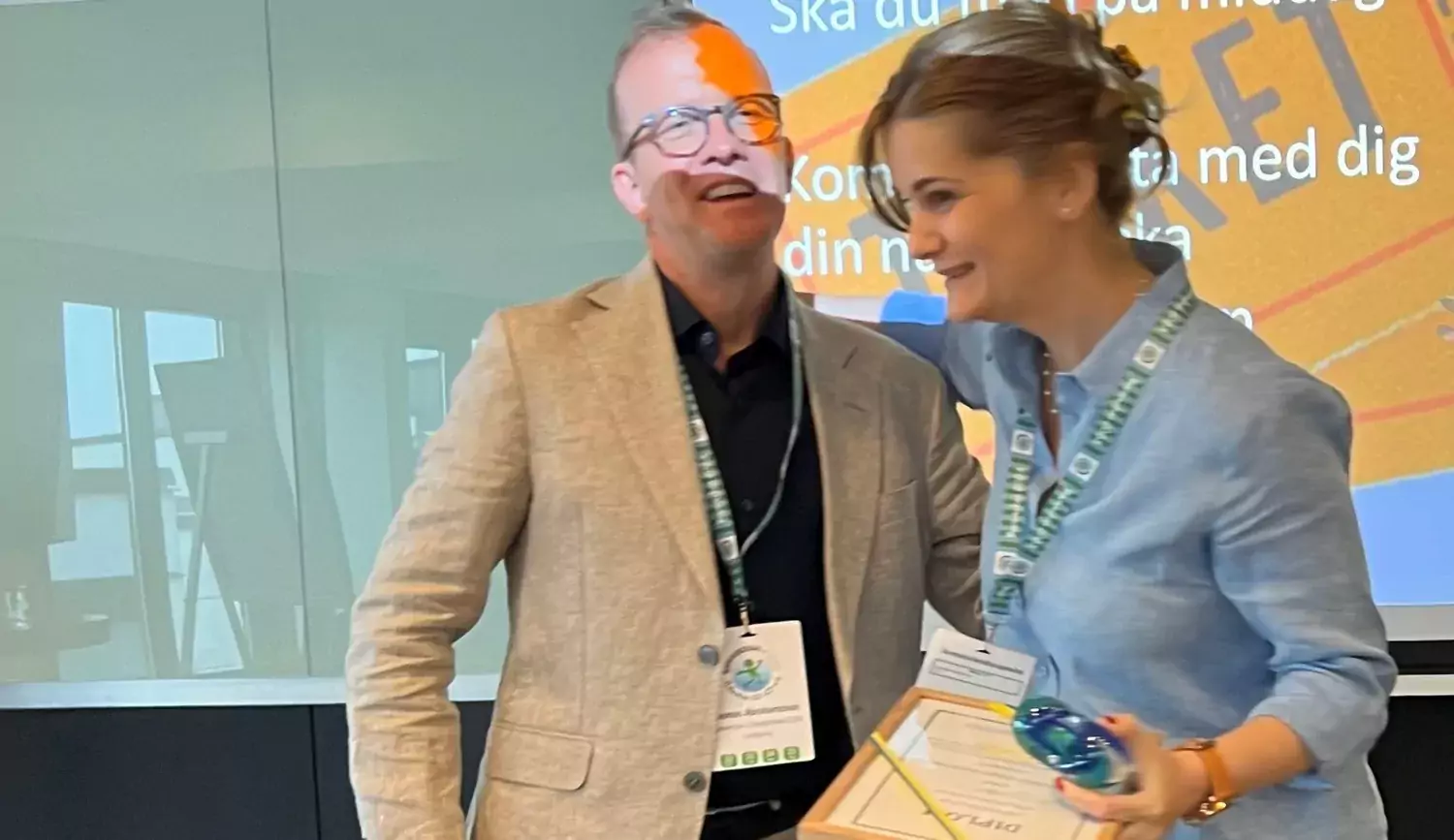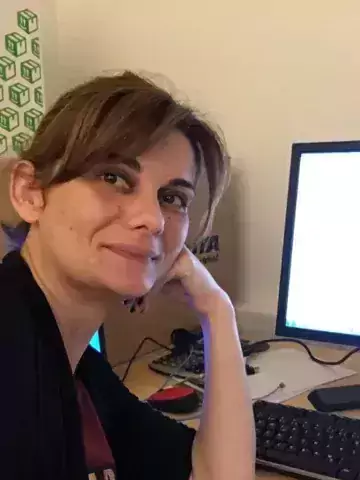Stavroula Anastasopoulou awarded by the Swedish Pediatric Society

The Rolf Zetterström prize for the best thesis in pediatrics 2022 goes to Stavroula Anastasopoulou who completed her dissertation at the Department of Women's and Children's Health last November. Her research contributes to improved treatment and lack of late effects for children and adolescents affected by acute lymphoblastic leukemia.
Congratulations on the award Stavroula! Could you give us a brief summary of your work?
– Thank you! My thesis is about the toxicity of the central nervous system during the treatment of acute lymphoblastic leukemia (ALL) of children and adolescents. Today, the survival rate is over ninety percent in developed countries, but side effects complicate the course of treatment. In the thesis, we take a closer look at Posterior Reversible Encephalopathy Syndrome (PRES) and epileptic seizures, explore possible genetic predisposition for toxicity and studie a more sensitive assay to detect leukemic cells in the central nervous system.
Writing a dissertation requires hard work and perseverance. What challenges and insights did you encounter during your research journey?
– I have learned that things take longer than you think, the importance of being able to receive good advice, recognize your own weaknesses and ask for help. I have also realized the importance of collaboration and well-functioning work groups with common goals and principles. I can also highly recommend Karolinska Institutets Academic Writing Support, which offer support to researchers and students, says Stavroula.

Stavroula's tips for writing a successful thesis
- Work on a project you believe in,
- Plan your doctoral journey strategically and realistically,
- Ask for advice from supervisors and colleagues with extensive experience in the field!
How did you manage to overcome obstacles and push the work forward?
– I believed in our project all the way and had the full trust and support of my supervisors. It made it easier to have patience, assimilate new knowledge and learn from mistakes.
Cooperation and mentorship seemed to play an important role in your research process. Who inspired and supported you along the way?
– Above all, I am grateful to my supervisors: main supervisor Susanna Ranta and assistant supervisors Arja Harila, Mats Heyman and Mats Eriksson. My mentor Simon Edvardsson was also an important support for me. But I have also received great support from my colleagues at the Pediatric Oncology group at KBH and at my clinic at Astrid Lindgren's Children's Hospital as well as the members of the international ALL toxicity working group "Ponte de Legno".
What are your plans for the future?
– I want to continue to combine clinical work with research. Right now I am working on two follow-up studies for my dissertation project, and want to continue to follow up on the neurological side effects in childhood cancer survivors. As a child neurologist, I also see that there are a lot of unexplored areas in my specialty, and I want to let my clinical work show the way forward.
What was your first reaction on receiving the Rolf Zetterström award?
– I worked hard on the thesis because I want to contribute with research on childhood cancer. But never saw it as a competition! I was surprised and extremely grateful and honored!

Author
Stavroula Anastasopoulou, PhD and child neurologist at Astrid Lindgren's Children's Hospital.
Title of the thesis
Background
The Rolf Zetterström prize for the best thesis in pediatrics is awarded annually by the Swedish Pediatric Society.
